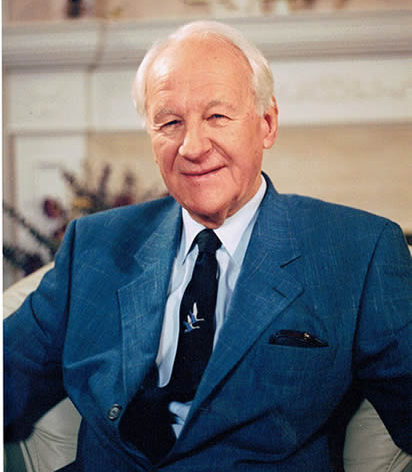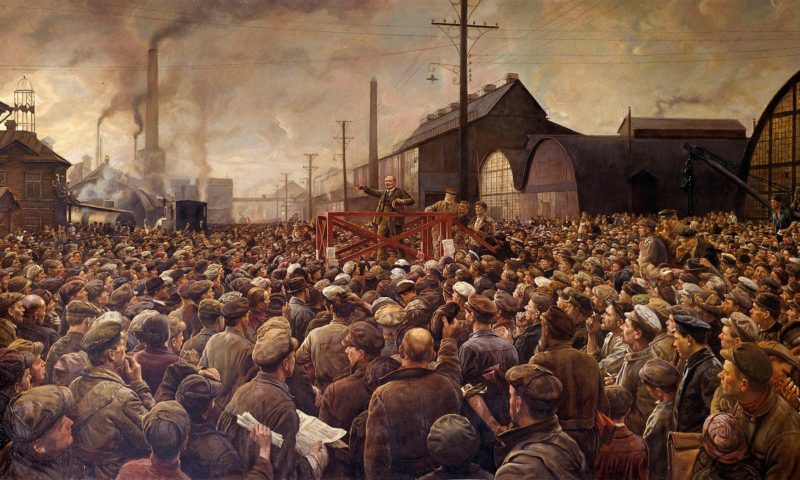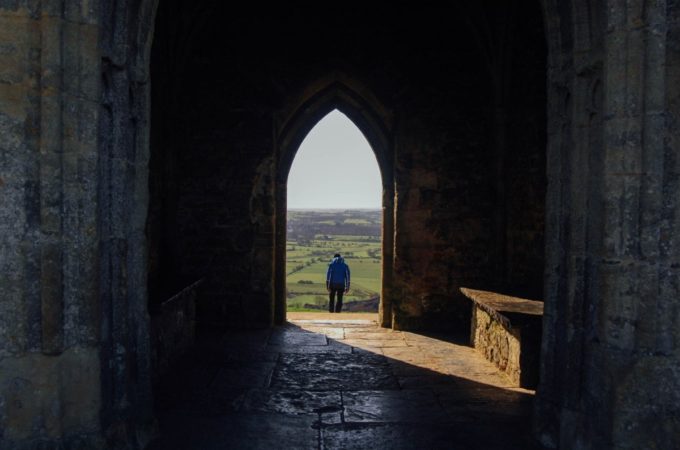Christians must recognize drastic changes in the West
Whether we like it or not, whether we know it or not, the Christendom which once grounded the West’s social, political, moral, religious and family life, has disappeared, replaced by a new paradigm. This new mindset has permeated all the aspects and institutions of Western countries. Even more astonishing, this drastic change has taken place before our very eyes, yet most people are unaware of it.
Since the end of World War I (1918), some of the most prominent European and Western thought leaders have been warning about this change.
- Historian Johan Huizinga: “... the things that we considered the most solid and sacred have begun to wobble, truth and humanity, reason and ”
- Aleksander Solzhenitsyn, Russian writer and historian: “The failings of the human conscience deprived of its divine dimension have been a determining fact in all the major crimes of the 20th century that began with the First World War … this war took place when Europe fell into an outburst of self-mutilation that did no more than undermine its vitality throughout a century and perhaps forever.”
- Malcolm Muggeridge, British writer and journalist: “It is difficult not to conclude that the man of the twentieth century decided to end himself. He causes the walls of his own city to collapse, until in the end he has brutalized himself to the point of imbecility…”
- Marshall Berman, American writer, “To be modern is to find ourselves in an environment that promises adventures, power, joy, growth, transformation of ourselves and the world and that, at the same time, threatens to destroy everything we have, everything we know, everything we are.”
- Swiss theologian Emil Brunner: “In the course of fifteen centuries a Christian civilization has been created, and that civilization is at stake right now, and there is doubt about its survival.”
The collapse of reason
Many have called this change the most devastating crisis the West has ever known, one that has affected all the fundamental aspects of society including the collapse of reason itself. It has been defined as a financial crises, but it has less to do with money than with the loss of moral and spiritual values. This crisis in Europe has become so serious in recent years, many people Christian and non-Christian, have been advocating for a return to “Christian” ethics, whatever that means for them.
This state of affairs presents one of the greatest challenges to Christians interested in reaching others with the gospel message. Before we can seek the  answer to this devastating diagnosis, we need have a clear idea of the real situation. The Lord Jesus Christ told the Pharisees and Sadducees of his day, “You know how to interpret the appearance of the sky, but you cannot interpret the signs of the times.” British theologian and pastor John Stott encouraged Christians to “double listen,” that is, listen to the Word of God and to the world. He said not many Christians study the world to understand it and be able to relate the Word of God to it in a way which resonates with the questions of modern unbelievers.
answer to this devastating diagnosis, we need have a clear idea of the real situation. The Lord Jesus Christ told the Pharisees and Sadducees of his day, “You know how to interpret the appearance of the sky, but you cannot interpret the signs of the times.” British theologian and pastor John Stott encouraged Christians to “double listen,” that is, listen to the Word of God and to the world. He said not many Christians study the world to understand it and be able to relate the Word of God to it in a way which resonates with the questions of modern unbelievers.
When we fail to do that, we answer questions no one is asking. Few postmoderns are concerned with sin, morality, hell, heaven or repentance. But of course as human beings made in the image of God, they do have questions. If we listen and engage them with the Holy Spirit´s help, a door may be opened to make postmodern people think and engage the issues of heaven.
Three major events in Western history
Many ideologies have tried to change the structure of society, to provide man with a more prosperous and just life. These include capitalism, Marxism, liberalism, fascism. All of them have tried to change social structures: the economy, the class system, production systems, political structures, etc. However, today’s crisis affects not only systems, but the very nature of the human, the composition and constitution of a person.
To understand this, we need to think about some of the major events in recent European and Western history.
Three major events have shaped the Western world in the last 120 years: the first World War (1914-1918); Russia’s Communist Revolution (1917),  which later spread to China and other countries; and The Second World War (1939-45). According to historians, these events gave rise to the irrational attitude of postmodernism. Professor and historian Joseph Loconte says The First World War “permanently damaged the mental outlook of European society, it brought in a season of cynicism, agnosticism and unbelief.”
which later spread to China and other countries; and The Second World War (1939-45). According to historians, these events gave rise to the irrational attitude of postmodernism. Professor and historian Joseph Loconte says The First World War “permanently damaged the mental outlook of European society, it brought in a season of cynicism, agnosticism and unbelief.”
But other, non-violent revolutions also shaped Western countries. Probably the most important is the so-called Cultural Revolution promoted by Antonio Gramsci and other communist thinkers of the Frankfurt School. Gramsci wanted to undermine Western institutions—universities, the Church, family, government—to trigger the collapse of the society and implement Communism. This was nothing less than a strategy aimed at demolishing civilization—its culture, way of life, beliefs, morality, values—from within.
Joseph de Maistre, a French writer and diplomat, said at the beginning of the 19th century, “Until now, nations were killed by conquest, that is by invasion. But … can a nation not die on its own soil, without resettlement or invasion, by allowing the flies of decomposition to corrupt to the very core those original and basic principles which make it what it is?”
The Frankfurt School
de Maistre exactly identifies the source of the cultural movement first systematized in the 1920s, following the creation of the Frankfurt School in Germany. This movement became a major influence in the creation of the counterculture movements of the 60s and 70s in the West. When the Russian Revolution failed to implement communism in the West, the attack had to refocus according to Karl Marx’s method: “Here is what we have to accomplish: Ruthless criticism of all that exists.” Not only politics, religion, law and family, but all the elements of Western culture. Again, in Marx’s  own words, “All that is solid has to melt in the air.”
own words, “All that is solid has to melt in the air.”
The Frankfurt School was founded in 1923 with the purpose of accomplishing just that. Their main motto was to “Make Western Civilisation stink.” Some historians believe this movement has been more harmful to Western civilization than the Russian Revolution itself. The school was designed to organize a revolutionary program to penetrate Western countries. Its members included Max Horkheimer, Georg Lukacs, Theodore Adorno, Erik Fromm, and other prominent figures of the intellectual Marxist and Communist movements.
Interestingly enough, this institution had its greatest influence on the West after its demise. When Hitler came to power in 1933, the Frankfurt School was closed and its members fled to the United States. Universities like Columbia, Princeton, Brandeis, and Berkeley opened wide their doors for these Marxists; what better place to implement their program than the American Universities? Their aim was to promote the corruption of the institutions that gave stability and unity to Western countries, starting from the university, the family, the church, the government, etc. Now we can see why they were so influential in the counterculture revolution of the 60s and 70s with people like Herbert Marcuse and others mentioned above.
- Hector J. Ramirez Martinez
… to be continued






